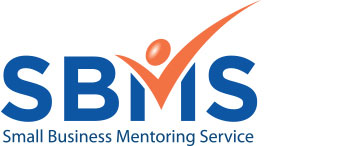I want to select a Mentor that can help with...
Zero 400 RPA Photography
Capturing Career success
They say when one door closes another opens. Gary Robinson is using the closure of his car maker employer’s factory to establish a specialist drone photography company.
Gary’s plant is set to cease production in 2017, so he hopes to turn his passion for photography and technology into a thriving business.
He has worked in photography before and saw the opportunity to use relatively affordable drone technology to offer a unique service in a dynamic and expanding industry.
The plan is to provide low level aerial photography, including video and stills, using a remotely piloted multi rotor drone as an aerial camera platform.
Potential clients include local and interstate councils, civil engineering businesses, building and construction companies, real estate agencies, tourism operators and individuals.
.jpg)
Gary is setting his business apart with a safety focus, attention to detail, planning experience and reliability. He would help his client’s access affordable aerial photography not previously available using traditional methods.
While his concept is timely and innovative, Gary wanted to ensure he developed it properly. “I wanted to confirm that my approach to setting up my business was appropriate and to gain guidance in the areas that I lacked knowledge and experience,” he says.
After visiting the Business Victoria website, Gary discovered SBMS and was matched with mentor Clinton Bugg.
A small business entrepreneur, Clinton uses his extensive business consulting experience to help small businesses in research, business strategy, start-up and growth planning, expense management, revenue generation and cash flow management.

SBMS is a non-government, non-profit organisation of volunteer expert mentors who give their time and experience to help small business. It is supported by Small Business Victoria, which refers clients to it.
Gary and Clinton had four sessions under the SBMS Core Client Program over several months, and mentoring is continuing.
They discussed the plant closure timeframe and developing a business with employer sponsorship and support through his employer’s Reskilling Program.
Clinton designed a mentoring program to address Gary’s mentoring requirements, provide a transition strategy from current employment to small business operator using goal action planning with clearly defined and prioritised goals and milestones.
He helped Gary to confirm and enhance his draft business plan and forward financial estimates that reflected a business start-up process, development of detailed financials, promotion and marketing strategy and business regulatory licensing and compliance process.
They also discussed:
- Understanding the importance of a clearly defined transition strategy
- Prioritising goals and activity planning to achieve them
- Processes for developing business and marketing strategies and plans
- Identifying and defining values underpinning the business
- Relationship engagement and management
- Providing a value proposition for customers
- Delivering quality outcomes and points of difference.
Clinton also shared relevant Government and commercial contacts for sourcing information and business opportunities.

He leveraged Gary’s enthusiastic desire to start his own business, plus his career background in relationships, production and project management to demonstrate how these skills and experience are equally relevant in starting and operating a successful small business.
Clinton says Gary is now more confident in making the transition to his own business and has had a number of client enquiries and potential opportunities.
“Gary’s business satisfies the three key elements of business success – innovation, diversification and differentiation,” he says.
Gary says Clinton’s advice has been thorough and relevant. It has given him confidence knowing that what he has done so far is appropriate for setting up and developing his business.
The mentoring also highlighted the need for work life balance and how a home based business can easily eat into personal and family time. An exit strategy was part of the business planning process.
Gary has already achieved a number of his start goals being regulator compliant and licenced, proof of concept established and ready to operate when his job finishes in 2017.
In the meantime, he is networking and investigating new client opportunities to prepare for the transition. Clinton has also given Gary a better understanding of how to set appropriate pricing to cover operating and personal expenses.
“At this stage the intention is to stay as a sole trader, with the option to outsource particular aspects of the business as the need arises to allow me to focus on the core aspects of the business,” he says.
Gary will also consider investing in more equipment and hopes to keep abreast of latest industry technology/trends and increase the flexibility of the services he offers.
Without Clinton’s advice and guidance, Gary says he would be less informed and less prepared. “Being able to speak with an experienced person who has already been through the process has been extremely helpful and worthwhile,” he says.
To download a copy of this story, click here ![]()


.png)
